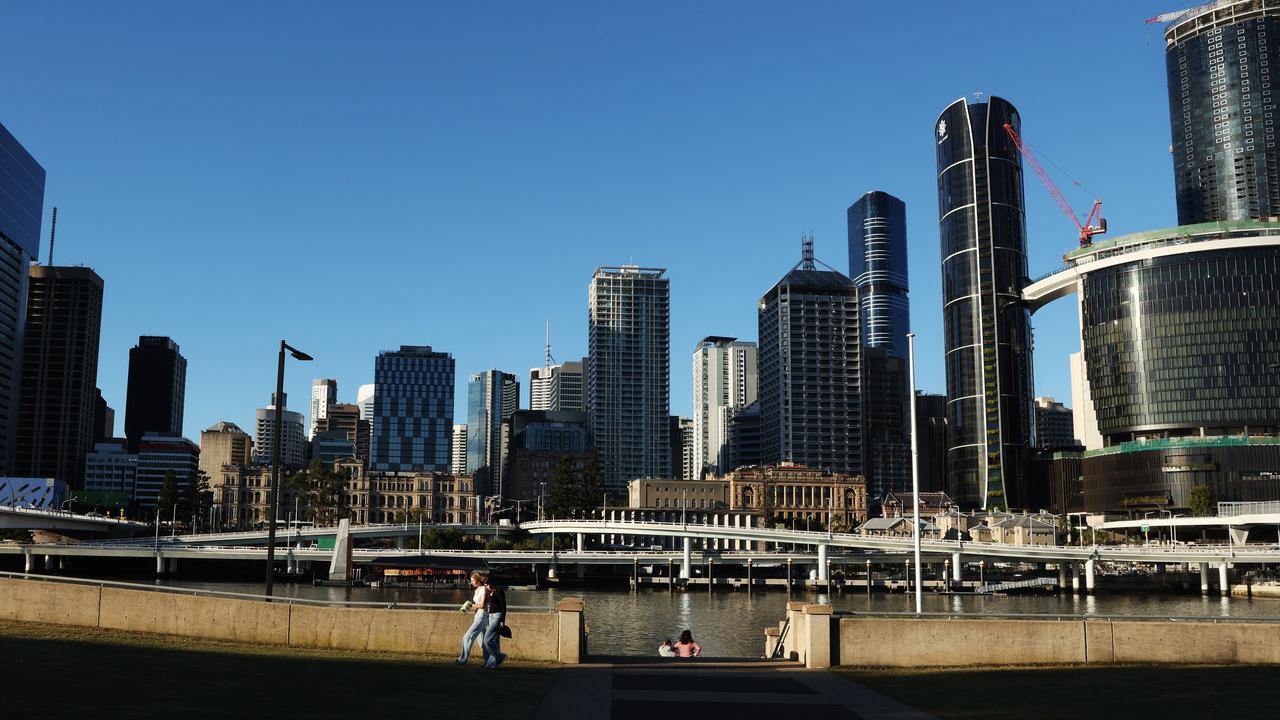Salena Estate winery assets in SA’s Riverland to be sold to Chinese wool giant Tianyu Wool
Suppliers left out of pocket after the collapse of a major South Australian winery will receive just 5c in the dollar as part of a sale deal to a Chinese wool tycoon.
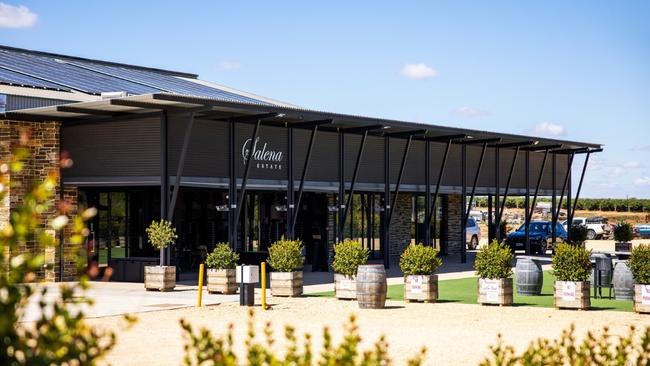
Growers and suppliers left out of pocket following the collapse of one of Australia’s biggest organic wine producers will receive just 5c in the dollar as part of a deal to sell the company’s assets to a Chinese wool tycoon.
Creditors of Salena Estate in South Australia’s Riverland region have approved a deed of company arrangement (DOCA) proposal put forward by an entity associated with China’s Tianyu Wool – the world’s biggest wool processor and a major investor in Australian agricultural land.
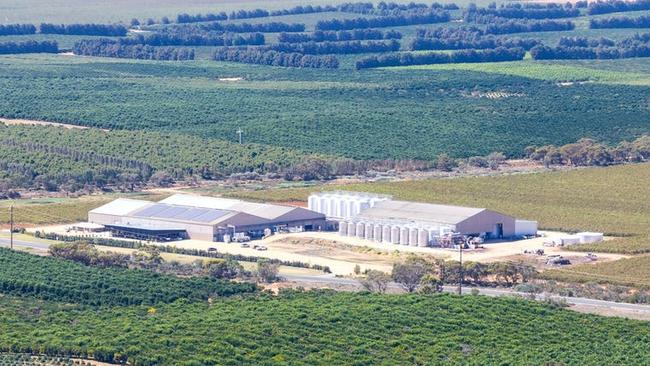
The deal will involve a $9.2m payment for Salena Estate’s vineyards, winery properties and equipment, but will not include the company brands and business, nor the millions of litres of bulk wine inventory that had built up by the time of the company’s collapse earlier this year.
While facing a significant shortfall on the $20m it’s owed, secured creditor Westpac has agreed to set aside part of the cash proceeds in order for unsecured creditors to receive 5 per cent of the amounts they’re owed.
Westpac will be paid out an initial $6m, while at least $3.2m will go into a DOCA fund used to deliver unsecured creditors their 5c dividend, and also pay out close to 20 redundant employees their full entitlements.
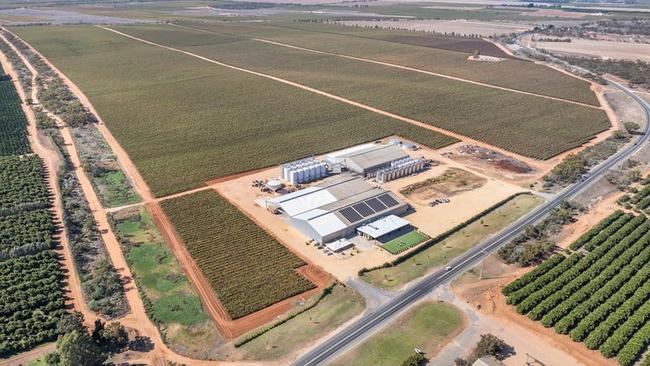
Administrators will continue to sell off the company’s wine stocks, which had reached around five million litres at the time of their appointment, with proceeds going into the fund.
Unsecured creditors of the company are owed around $1.2m, while the Australian Tax Office is owed $1.4m.
The asset sale, which is subject to approvals from the Foreign Investment Review Board, is expected to close by March 2025.
Tianyu Wool, led by reclusive billionaire Qingnan Wen, is a major player in the Australian wool industry, with the Salena Estate acquisition adding to his vast landholdings across Victoria.
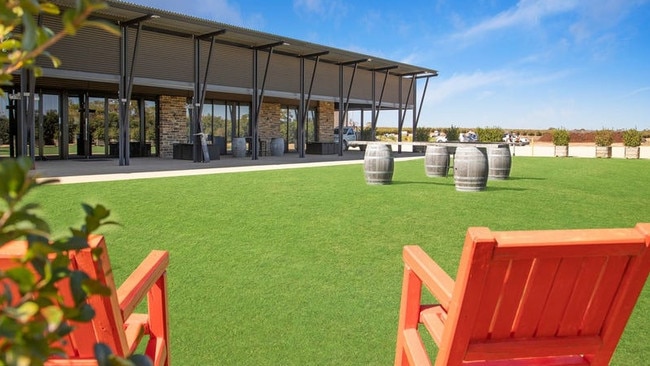
Last year Mr Wen – founder, chairman and owner of Tianyu Wool – acquired the historic Nerrinyerie farm in Victoria’s Wimmera region, after earlier picking up the heritage-listed Mawallok estate and sheep station near Beaufort, the combined holding of Mokanger and Lewana farms west of the Grampians near Cavendish, and the 2000ha Lal Lal Estate near Ballarat.
Administrators Tim Mableson and Ryan Eagle of KPMG said they were aiming to close out the sale contract in the coming weeks, but declined to comment further on the deal.
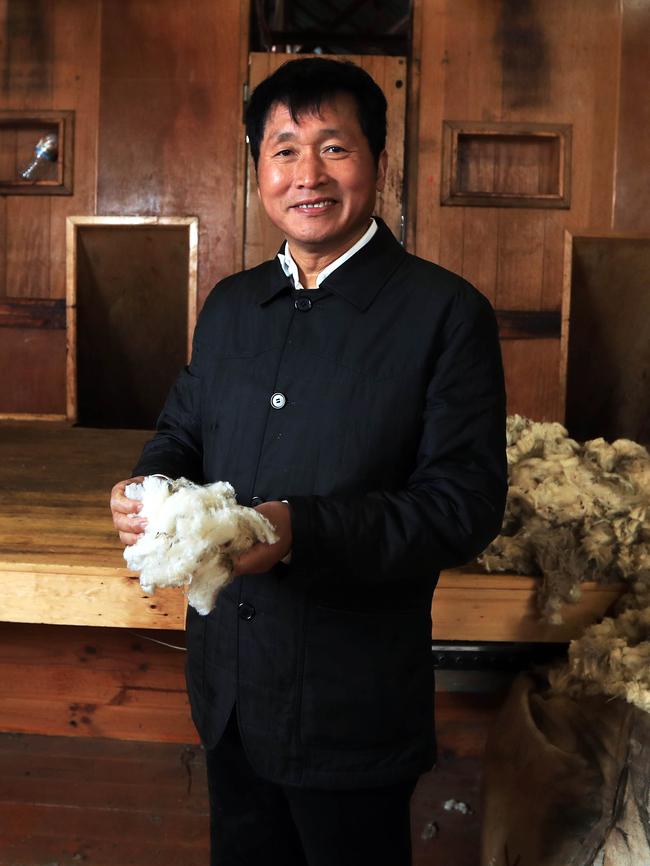
In their latest report to creditors, they said Salena Estate was Mr Wen’s first foray into Australia’s wine industry.
“The proposed sale is an asset sale only and does not include a sale of the companies’ business or bulk and bottled wine inventory (or transfer of employment for the companies’ employees),” they said.
“The purchaser … has a record of major rural property acquisitions in Australia (none of which are in the wine industry) and is a party of significant means.
“We have therefore assessed the risk that FIRB do not approve the sale to be low risk, however, FIRB approval is an uncertain process in itself and cannot be guaranteed.”
Salena Estate, established by the Franchitto family in 1998, produced around 10,000 tonnes of predominantly red wine annually – making it one of the country’s largest organic wineries at its height – and a top 20 Australian wine company by total wine production.
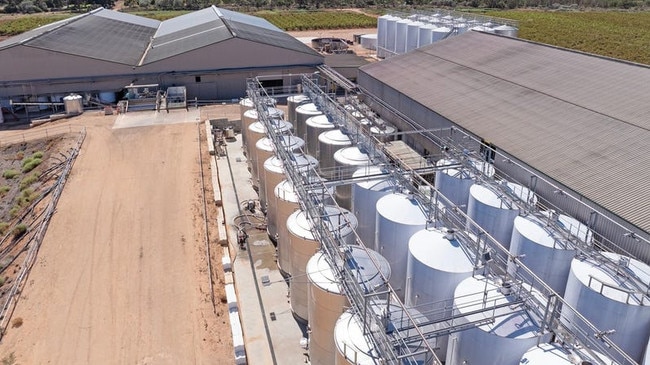
Assets that will go to the Tianyu-related purchaser include Salena Estate’s 15,000 tonne winery, 17 million litre storage facility, 185ha of vineyards in the Riverland and fully equipped laboratory and bottling line.
The company struggled to find new customers to fill the void left by the collapse of the Chinese market in 2020, when authorities in Beijing imposed hefty tariffs that were only removed following the company’s collapse, in March 2024.
The Riverland and other inland wine regions, including the Riverina in NSW and the Murray Valley in Victoria, bore the brunt of the Chinese tariffs, which created a glut of mainly red wine.
In their report, the administrators said an over-reliance on the Chinese export market and lack of domestic sales were major contributors to Salena Estate’s downfall.
“Its strategy to export wine to China was severely impacted by the imposition of the China tariffs on Australian wine introduced in late 2020,” they said.
“The VA Group (Salena Estate companies) was unable to pivot to other export markets or generate a domestic retail presence to replace its lost export sales to China.
“The inability to generate cash flow from wine sales in a depressed market, falling bulk wine prices being well below cost and a high fixed cost base all resulting in substantial trading losses and inability to repay creditors that fell due.”
Originally published as Salena Estate winery assets in SA’s Riverland to be sold to Chinese wool giant Tianyu Wool



